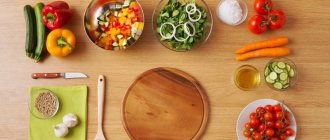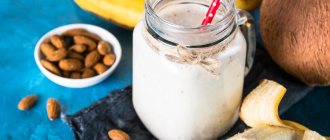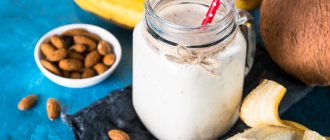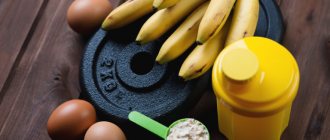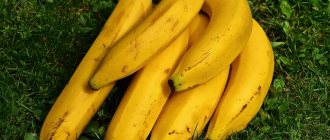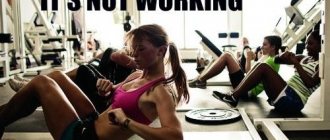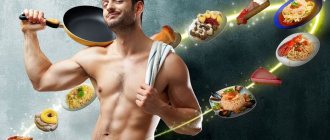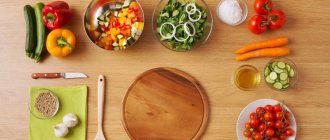It is important to understand that whether you are losing weight or building muscle mass, you should not allow yourself to go hungry. It provokes the body to slow down its metabolism and in every possible way restrain the consumption of fat reserves - even to the point of burning muscle tissue. And muscles, as you know, consume the bulk of calories and it is in them that fat is burned. Hunger also tunes our metabolism to create reserves - those same fat deposits.
“Working out is a significant expenditure of energy,” says Marina Moreva, personal fitness trainer. “Therefore, if after an evening workout you don’t eat anything at all, there is a risk that by the morning you will be completely hungry. Then, instead of restoring muscles, the body will tune in to restoring fat deposits, which we don’t need at all.”
Food before workout
Often people deliberately do not eat not only after training, but also before, so as not to interfere with fat oxidation. These fears are not justified.
Research shows that carbohydrates during intense cardio (interval training, HIIT, etc.) have no effect on fat oxidation. Of course, low-intensity workouts (light jogging, brisk walking, cycling or stationary cycling) will be affected, but such workouts usually do not require additional energy, are low-energy in themselves, and can even be done on an empty stomach.
Moreover, carbs before an intense workout can indirectly help with fat loss - simply by allowing you to work harder, longer, and harder. As a result, you burn more calories per workout than if you could barely move from weakness and hunger.
From a weight loss point of view, the ability to train at full strength is much more important than the additional calorie expenditure due to skipping meals, especially since it is very small.
The same applies to strength training while losing weight. The ability to train hard, intensely always takes precedence over the ability to burn a few extra calories. Moreover, strength training does not consume many calories - during the workout, a person rests in total more than he trains.
The goal of strength training during weight loss is not so much to burn calories as to protect your muscles while on a diet. Spending calories is just a bonus, not a goal.
How does the stomach work after binge drinking?
After many days of drinking, appetite decreases significantly. Symptoms of severe intoxication appear: nausea, vomiting, abdominal pain, diarrhea, weakness. The production of neurotransmitters responsible for the feeling of hunger decreases. In this case, the production of gastric juice occurs in a standard manner.
The hydrochloric acid released in the stomach begins to irritate the mucous membranes. As a result of peristaltic contractions, it is thrown into the final section of the esophagus. It is this fact that explains why ulcers, gastritis, and esophagitis often worsen in alcohol addicts.
Alcohol also has a negative effect on the pancreas and liver. When binge drinking, ethanol provokes contraction of the sphincter of Oddi, which reacts sharply to the penetration of bile into the intestines. Secretion is not released at the usual rate. It accumulates and thickens. Then the gallbladder becomes inflamed. Liver diseases and acute alcoholic pancreatitis may develop.
Eating after an intense workout
After a high-intensity workout, the body continues to use fat for fuel, even when you eat carbohydrates immediately after (as long as you maintain a calorie deficit for the day). Carbohydrates are used for recovery, and the body continues to use fat for energy.
Post-workout nutrition has a huge impact on the body's recovery. On a diet, recovery is worse, and if a person does not eat two hours before training, an hour during training and two hours after, stress becomes greater.
Therefore, the benefits of eating post-workout outweigh any benefits from the additional (and very modest) calorie expenditure.
What foods should you not eat when losing weight?
Once you have made the decision to seriously train and lose weight, you need to exclude the following foods from your diet.
- Caffeine interferes with the complete absorption of protein and complicates the body’s recovery process. Therefore, coffee, tea, cocoa, chocolate and other caffeine-containing products are prohibited.
- Foods high in fat disrupt metabolism and slow down the rate of absorption of proteins and carbohydrates.
Perhaps you will
Eating after regular cardio
Many people forget that weight loss occurs not only during training, but in the remaining 23 hours when a person is not exercising. Therefore, the basis of any weight loss is, first of all, diet.
If you maintain a calorie deficit throughout the day, you will lose weight even if you eat right after cardio.
Regular cardio, due to its low power, does not require a large amount of energy before, during and after exercise. Therefore, here you can rely on the feeling of hunger. If you want, eat, if you want, don’t.
How long after training can you eat, and what to eat beforehand?
When you are actively exercising, you find the optimal period - before or after work, in the evening before bed, or 2-3 times a week, but in any case, you start exercising between meals.
Let's look at a few popular options.
Exercising or jogging early in the morning before breakfast
To this day, trainers argue about the usefulness of training on an empty stomach. A common belief is that there is little glycogen left after sleep, so the body will break down the fat layer
Opponents of this theory argue that morning exercise leads to muscle weakening.
If you choose this option, then you don’t need to eat anything at all before exercise, but you should drink a glass of clean water 15-20 minutes before starting. This rhythm is suitable for short runs and other moderate-intensity aerobic exercise. Strength complexes should not be performed before the first meal.
You can eat in 20-30 minutes. During this time, active processes of lipid breakdown will take place; you should not wait longer.
Workout in the morning after a light snack
If you feel that you cannot start exercising without a light breakfast, then give preference to small, but carbohydrate-rich portions. Good fit:
- bananas;
- cereal cookies;
- a piece of cheese with coffee;
- granola bar;
- a glass of medium-fat dairy products.
But such a menu should fit into 100-150 grams, so as not to create heaviness, but only to replenish strength.
It is better to eat a full breakfast 30 minutes after training, which will replenish the energy spent.
Exercise during the day, afternoon or evening
If you do not exercise in the morning, you should first make a snack of complex carbohydrates - cereals, fruits, vegetables - 1.5-2 hours beforehand. Many people believe that you need to give preference to proteins, but this is not entirely true - meat will weigh down your digestive system, but will not provide enough energy - it will be difficult for you to move, your strength will not last long. Protein foods are suitable for replenishing energy costs after exercise so that muscles do not lose their elasticity.
How to organize meals?
Instead of cutting out carbs before and after strength training to burn more calories, do the opposite. Eat basic carbohydrates before and after training, reducing their amount at other meals.
If you're training in the evening, it doesn't make sense to eat most of your carbs for breakfast. Moving your carbs to the evening can preserve some of the benefits of a low-carb diet during the day (due to low insulin levels), while still allowing you to exercise intensely and allow your body to recover afterwards.
Exercising before bed – yes or no?
Exercising in the evening can increase your heart rate as well as your core body temperature . This can cause sleep problems as hormones such as cortisol and adrenaline are stimulated in our bodies. Therefore, in the past, exercise before bed was considered harmful and was generally not recommended. However, new research suggests otherwise. Research has confirmed that people who exercise 35 minutes before bed sleep just as well as on days when they did not exercise in the evening.[16]
The basis of quality sleep is regularity. This has been confirmed by the National Sleep Foundation , which found that 83% of people who exercise regularly, regardless of when they do it, sleep better compared to people who don't exercise. [17] It follows that each of us is unique and therefore should adapt to the needs of our body. If you have trouble sleeping, we recommend that you exercise at least 3 hours before bed. If you prefer evening workouts , then that's fine too and can bring you a lot of benefits.
Daytime and evening workouts are the best time to strengthen your strength. Body temperature rises to its highest levels from 16:00 to 18:00 . The study confirmed that as body temperature increases, muscle strength also increases . [18] Further research has shown that testosterone production most in the afternoon and evening. [19]
Exercising before bed will also relax you after a busy day and relieve stress. However, do not forget about proper nutrition even before bed, so as not to wake up at night from hunger . In the following lines you will find out what food is best to eat after training in the evening before bed.
Literature:
- Mental illnesses: clinic, treatment, prevention: [Ref. a manual for neurologists, psychotherapists and doctors of other specialties] / Tyuvina N. A. - M.: Publishing house. house "KRON-press", 1997. - 250 p.
- Guide to addictionology / Axelrod B. A. et al.; edited by V. D. Mendelevich. - St. Petersburg: Rech, 2007. - 766 p.
- Gastroenterology: reference book / Baranovsky A.Yu. and etc.; Peter, 2011. - 506 p.
The text was checked by medical experts: Head of the socio-psychological service of the Alkoklinik MC, psychiatrist-narcologist L.A. Serova.
CAN'T FIND THE ANSWER?
Consult a specialist
Or call: +7 (495) 798-30-80
Call! We work around the clock!
How to recover faster after binge drinking
High-quality food after binge drinking, unfortunately, is not a guarantee of quick recovery. If the intoxication is very strong and the patient has acute or chronic diseases of the internal organs, serious problems are possible. To avoid them, you should come out of your binge in a drug treatment hospital. Optimal conditions for a quick recovery have been created here.
Droppers are used to quickly cleanse the body of toxins. The doctor's infusion includes:
- saline;
- glucose;
- absorbents.
In the presence of diseases of internal organs, means can be used to normalize their functioning. Thus, for liver inflammation, hepatoprotectors are indicated. In case of disruptions in brain activity, nootropics are prescribed. Doctors are often forced to use medications to support the stomach, kidneys, and pancreas.
In addition to pharmacology, physiotherapy is used during the period of recovery from binge drinking. Excellent results can be obtained from magnetic and laser therapy and acupuncture. In some cases, plasmapheresis is required.
It is unacceptable to treat binge drinking as a trifle. This is a dangerous condition. Don't let it develop. If binge drinking does occur, be sure to consult a doctor. He will tell you what you can eat and select the necessary medications.
Indicative menu for a speedy recovery
On the first day of recovery, it is advisable to give preference to products that reduce cravings for alcohol. So, you can eat semolina porridge, buckwheat, oatmeal. A great option is a steamed omelette. If you don’t feel like eating at all due to alcohol poisoning, you don’t have to force yourself. But drinking plenty of fluids is the main condition for recovery.
For second breakfast you can eat: dry biscuit, fruits, dried fruits, nuts with cottage cheese. Suitable drinks include kefir, milk with honey, and fruit juice. Lunch should include two dishes:
- low-fat soup or vegetable salad dressed with olive oil;
- boiled chicken or fish with pasta or any cereal.
Regular loaves and yeast buns should be replaced with bran or rye bread.
An alcoholic can use chicken eggs and raw vegetables as an afternoon snack. Dinner should not be made “heavy”. The optimal solution is lean, steamed meat and mashed potatoes. If the poisoning is severe, you can get by with just vegetables.
If an addict really loves sweets, he can have honey, marmalade, marshmallows, marshmallows, dark chocolate, jam, but only in small quantities. Any pies, cakes and pastries are prohibited, as are sweets.
Snacks between main meals on recovery days are not advisable. It is important to eat on a schedule so as not to put increased stress on your stomach.
How to make a diet correctly
The most reasonable solution is to consult an experienced narcologist and nutritionist. If the drinking sessions were prolonged and alcohol was used in high doses, it is advisable to begin treatment with a drip. This simple measure will speed up the cleansing of the blood from toxic metabolites of ethanol.
During a medical consultation, the alcoholic will find out how many times he should eat and what exactly. When developing a personal menu, the doctor takes into account:
- gender, age;
- initial weight;
- severity of symptoms of poisoning;
- existing diseases;
- tendency to allergies;
- patient's eating habits.
As you recover, the list of permitted products will expand. Gradually it will include more fatty and satisfying dishes. It is important not to force the process of returning to your usual menu and strictly follow the diet prepared by your doctor.
It happens inside of us
The body does not recover immediately after suffering intoxication, because toxic substances already had a detrimental effect on almost all organs. Often after poisoning, the stomach hurts - this is explained by the fact that the gastric mucosa becomes inflamed - acute gastritis develops. The stomach stops doing its usual job - digesting food. Nausea, belching and pain appear after poisoning. Poorly digested food enters the intestines. And he, of course, is “dissatisfied” with the poor functioning of the stomach, and his “indignation” is manifested by bloating, gurgling and diarrhea after poisoning.
First of all, the liver suffers from intoxication: it works around the clock, seven days a week, neutralizing toxic substances that enter the body. “Fatigue” of the liver may be indicated by heaviness in the right side, yellowness of the skin, bitterness in the mouth, and elevated temperature after poisoning. During the period while recovery from poisoning is underway, general weakness, pain in muscles and joints, poor appetite, insomnia and other symptoms may bother you.
During the recovery period, medications are prescribed that improve digestion processes (enzymes) and the intestinal sorbent Enterosgel, which neutralizes and removes toxic molecules.
To restore beneficial intestinal bacteria, doctors prescribe effective tablets after poisoning - probiotics.
Foods that reduce cravings for alcohol
There are products that reduce cravings for alcohol. The list can include fast carbohydrates, the sources of which are sweets. Cakes, chocolate, baked goods - such goodies reduce the desire to get hungover, as they increase the production of endorphin (the hormone of happiness). But it is clear that they are harmful to health and in case of severe alcohol intoxication, eating them is extremely undesirable.
There is an alternative to the usual sweets - soy products, all cereals, strawberries, blueberries, quail eggs, fish, bananas, tomatoes, oranges, peppers. They all also reduce the desire to drink alcohol. And after a binge, you can eat all these foods absolutely calmly, without fear of undesirable consequences.
By giving preference to complex carbohydrates, the drinker will feel much better. They should become the basis of his diet along with proteins. What’s important is that foods rich in complex carbohydrates prevent spikes in blood glucose. This effect is very important in terms of preventing alcoholism (fluctuations in glucose contribute to the desire to get drunk).
Fluid is the key to a speedy recovery
Due to drinking, the body improperly redistributes fluid reserves. A subjectively dependent person can understand this by his swollen face and severe headaches. In such a situation, the volume of circulating blood decreases, which is unacceptable.
This is why narcologists tell all patients to drink a lot. If dehydration is severe, IVs are given. The liquid normalizes the amount of circulating blood and activates the activity of volume and osmoreceptors. As a result, urination becomes more frequent, swelling goes away, headaches are minimized, blood pressure drops, and the load on the heart is reduced.
If a large amount of liquid taken causes a gag reflex in the drinker (this often happens with severe intoxication), it is useful for him to drink often and little by little. If this measure turns out to be useless, you should go to a drug treatment hospital as soon as possible for an IV drip.
How to eat healthy after binge drinking
In the first one or two days, an alcohol addict does not feel like eating at all. Ethanol intoxication manifests itself in all its glory. The person is feeling sick. His salivation increases. I'm constantly thirsty. When trying to eat something, vomiting may occur.
It is important to avoid foods that cause vomiting. You need to find foods that you can eat without disgust. Jelly or low-fat broth will do. It is good if the food is at room temperature and slightly warm. This way she will assimilate better.
It is recommended to drink broth or jelly every two to three hours in small portions. Starting from the second or third day after binge drinking, you can switch to your usual diet, eliminating all harmful substances from it. It is important not to overeat. Doctors advise temporarily reducing the single serving by 20-30%.
